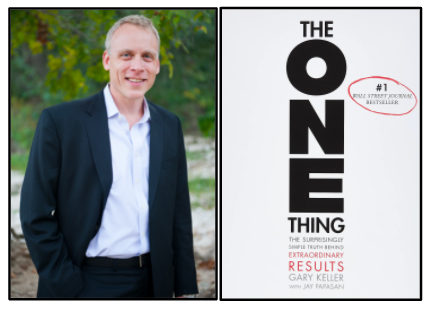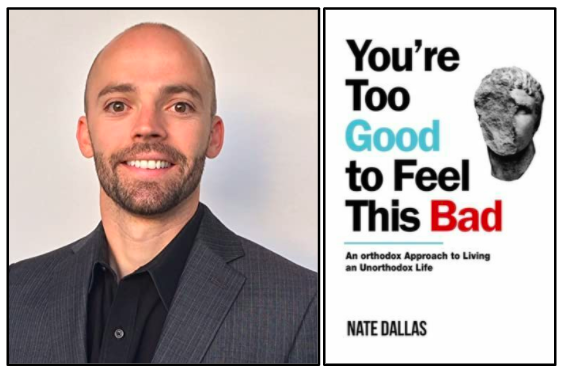- Book: “The Emperor’s Handbook” by Marcus Aurelius
- Pages: 160 pages
- For: Anyone interested in philosophy, living a good life or looking for meaning in life
- Lesson: Learn to live a fulfilling life while being a virtuous person
Imagine a boy being born in Rome in 121 A.D. At three years old, the boy's father dies and he is raised by his mother. At seventeen years old, the boy is adopted by the emperor of Rome. A few years later, he marries the emperor's daughter. By 139 A.D., he assumes the title of Caesar. Afterward, he soon becomes the emperor of Rome and thus, one of the most wealthy and powerful individuals in the world.
How do you think this story ends?
If the phrases "power corrupts and absolute power corrupts absolutely" and "money is the root of all evil" are true, then if this boy was like most people, he would have succumbed to the evils of money, and power. However, this boy was different.
He would rule the Roman empire at its height without becoming tainted by the seduction of wealth or power that had corrupted many of his predecessors. This boy knew how to live the good life, how to find happiness, and how to make the right decisions.
That boy was Marcus Aurelius.
Marcus Aurelius as a boy (image link).
Towards the end of his life, Marcus wrote down notes to remind him of his guiding principles and to hold himself accountable to them. These notes have become The Emperor's Handbook.
Here are 7 important lessons learned from The Emperor's Handbook by Marcus Aurelius:
1) Purge Your Mind of Idle Thoughts
“Do not waste the rest of your life speculating about others in ways that are not to your mutual advantage. Think of all that might be accomplished in the time you throw away–distracted from the voice of your own true and reasonable self–wondering what the next man is up to and why, what he’s saying, or thinking, or plotting. Purge your mind of all aimless and idle thoughts, especially those that pry into the affairs of others or wish them ill. ”
Think of all the time you've spent today thinking negative thoughts or wondering what others think of us. It's something we all do, although we all know it is a bad habit. We spend time overthinking and overanalyzing certain conversations or arguments we've had in our day.
We've all had arguments with a friend or spouse where we replay the conversation in our heads for hours thinking of the perfect comeback or insult.
Is this really the best use of our time?
Marcus doesn't believe it is. He encourages us to not waste our time with these idle thoughts. Nor should we spend time wishing others ill. Focus on improving your life, not damaging the lives of others.
2) Avoid The Inferior Loves Of Life
“Nothing whatsoever–neither popularity, nor wealth, nor power, nor the pleasures of the flesh, nor anything of the sort–should compete in your affection for the good that flows from reason and neighborliness. Although for awhile these inferior loves may seem quite compatible with an orderly life, they will soon overpower and destroy you.”
We all know people that spend their time chasing popularity, wealth, power or pleasure. However, Marcus advises us against chasing these inferior loves. He believes that the only thing people should pursue is goodness and kindness.
Although Marcus Aurelius had fame, wealth, and power due to being the emperor of Rome, he didn't pursue or indulge in these traits.
It seems almost every day there is a news report on a new celebrity, government official or business leader that has been involved in a scandal. Celebrities are constantly having meltdowns due to all the media attention and paparazzi (e.g. Britney Spears). Government officials chasing power can be corrupted by it (e.g. Bill Clinton). Business leaders chasing wealth lose focus of other priorities (e.g. Wells Fargo CEO John Stumpf).
Emperor Marcus Aurelius.
3) Your Mind Is Your Vacation Home
“Everyone dreams of the perfect vacation–in the country, by the sea, or in the mountains. You too long to get away and find that idyllic spot, yet how foolish…when at any time you are capable of finding that perfect vacation in yourself. Nowhere is there a more idyllic spot, a vacation home more private and peaceful, than in one’s own mind.”
Most of us take vacations to get away and to relax. But how many of us have gone on vacation and it was the opposite of relaxing. Perhaps, you went to Mexico and it rained all week. Or maybe you traveled to England only to find out there is construction going on right next to your hotel room.
Marcus argues that a person doesn't need to travel across the country or sea to find their vacation home. The perfect vacation spot is in our minds and we can reach it anytime. Sometimes meditating during your lunch break can be more peaceful and relaxing that being on a crowded beach in Cancun.
Many people have come to this same conclusion. Yoga spots are popping up in almost every neighborhood, corporate offices have meditation rooms, and more business leaders and health officials talk about the importance of finding time to meditate daily.
4) Remove What Is Unnecessary
“Is it not better simply to do what is necessary and no more, to limit yourself to what reason demands of a social animal and precisely in the manner reason dictates? This adds to the happiness of doing a few things the satisfaction of having done them well. Most of what we say and do is unnecessary anyway; subtract all that lot, and look at the time and contentment you’ll gain. On each occasion, therefore, a man should ask himself, ‘Do I really need to say or do this?’”
A lot of us spend our days being busy but when the day is almost over, we feel as if we didn't accomplish much and wish for more time. Marcus' advice solves both of these problems.
He advises us to only do what is necessary and do it well instead of doing many tasks, much of which are probably unnecessary anyway. If this advice sounds familiar, it is because Peter Drucker was also an advocator of this technique.
Before performing an activity, take a second and ask yourself, do I really need to do this? This will allow you to spend your time focusing on only important matters.
5) Be Like The Third Fellow
“There are three kinds of men in this world. The first, when he helps someone out, makes it known that he expects something in return. The second would never be so bold, but in his mind he knows what he has done and considers the other person to be in his debt. The third somehow doesn’t realize what he has done, but he’s like a vine that bears fruit and asks for nothing more than the pleasure of producing grapes. A horse gallops, a dog hunts, a bee makes honey, one man helps another, and the vine bears fruit in due season. You ought to be like that third fellow, who does good without giving it a second thought. ”
The first type of man is the kind that will help you but will want something in return. The second isn't as obvious but he also would like something in response to helping. However, the third fellow helps simply because it is his nature.
Just like it is a horse's nature to gallop, it should be human nature to help others. Help simply because it is your nature, not because you expect something in return.
6) Overlook The Wrongs Of Others
“When someone wrongs you, ask yourself: What made him do it? Once you understand his concept of good and evil, you’ll feel sorry for him and cease to be either amazed or angry. If his concept is similar to yours, then you are bound to forgive him since you would have acted as he did in similar circumstances. But if you do not share his ideas of good and evil, then you should find it even easier to overlook the wrongs of someone who is confused and in a moral muddle. ”
There are two things to take away from this quote. First, if someone wrongs you, ask yourself if you would have acted the same way if you were in their shoes. If yes, forgive the way they act.
For example, imagine you were in a crowded subway and someone shoves you to get into the train. If you were in their position would you act the same way? If you had an important business meeting with a CEO and needed to get on the train to make the meeting on time, would you shove your way onto the train? If so, do not get mad at that person for you would act the same way in their position.
Secondly, understand that not all individuals have the same ideas of right and wrong. People are all raised differently from different cultures, environments, and religions. Thus, there is no universal sense of good and evil.
For example, imagine you're walking home at night and a man comes up to you and threatens to stab you unless you give him your wallet. From your perspective, you see this as an act of evil. However, the thief might have a different perspective. Say he grew up in an orphanage and spent much of his life homeless. Say it's winter and he hasn't eaten all day. Say he has never actually stabbed someone but knows it's a quick way to get money to buy food. This doesn't justify the act of stealing, however, it is important to realize the thief is in a moral muddle and doesn't have the same ideas of good and evil.
7) Accept Corrections And Adjust
“Remember that you don’t lose any freedom by changing your mind and accepting the correction of someone who points out your errors. After all, it’s your initiative, your judgement, indeed your intelligence that makes change and acceptance possible.”
Life is complex and filled with information. Sometimes we make decisions and are afraid to change our position even when new information suggests a better solution. Often, it is our ego that fears being wrong (Ryan Holiday elaborates on this idea). Especially when someone points out any mistakes we may have made.
However, Marcus points out that changing our mind is our decision. It would be unwise to stick to your original position if presented with information that outlines your mistakes. It is better to correct our mistakes and make a better decision moving forward. This is what makes change possible.
These are just a few lessons learned from The Emperor's Handbook. To learn more about leading a good life, finding happiness and making the right decision, I recommend reading the whole book. It's less than 150 pages long, click the link below to learn more.
If you enjoyed this article, consider supporting our site or signing up for our monthly newsletter. Thank you!
Reader freebies:



















